Serbian officials, KFOR reach agreement
Representatives of the Serbian government and the commander of the NATO-led KFOR in Kosovo have agreed on ways of resolving the crisis in the north.
Friday, 05.08.2011.
10:05

Representatives of the Serbian government and the commander of the NATO-led KFOR in Kosovo have agreed on ways of resolving the crisis in the north. Minister for Kosovo Goran Bogdanovic confirmed this on Friday evening. Serbian officials, KFOR reach agreement “The agreement that we reached was backed by the Serbian government and President Boris Tadic. We can defend legitimate interests in a peaceful way,” Bogdanovic told Serbs gathered at the barricade in the village of Rudare. He called on the citizens to support the agreement reached with Buehler. “The agreement is not ideal, the circumstances of the talks were bad, but our reaction has prevented Kosovo Prime Minister Hashim Thaci from putting his plans into practice,” head of Belgrade's negotiating team in the talks with Pristina Borislav Stefanovic said. He stated that the agreement refers to the Jarinje and Brnjak administrative crossings and envisages that no Albanian officials, members of the KPS unit Rosu, or any symbols of the so-called state of Kosovo will be present at these crossings. “The Brnjak administrative crossing will have members of the Kosovo police from Zubin Potok, 28 Serbs and three (ethnic) Albanians,” Stefanovic said. There will be no so-called Kosovo customs at this crossing, Stefanovic said, adding that this is a temporary agreement with full international guarantees which will be valid through 15. “It is certain that this agreement has shortcomings, but it secures peace,” said Stefanovic and asked from the gathered citizens to be united and to support the state. The one who breaks the agreement will be responsible for the consequences. This agreement has given a chance to stabilization in the field, Stefanovic said. Tanjug also quoted him as stating that "vehicles up to 3. tons will be able to pass freely", while those over 3.5 tons "will have to have appropriate Red Cross certificates". Borislav Stefanovic and Goran Bogdanovic, who are in Kosovo negotiating on behalf of the government, previously said they would first inform the leaders of the Serb municipalities in the north about the content of any possible deal. The sides seemed close to reaching an agreement yesterday, but reports said that KFOR commander Erhard Buehler demanded that only humanitarian, instead of trucks carrying regular goods, be allowed to cross into the territory at the Jarinje and Brnjak administrative checkpoints. Late on Wednesday, KFOR announced that the interim agreement would see KFOR maintain control of the administrative crossings until at least mid-September. The crisis in the Serb north broke out on July 25, when the Kosovo Albanian authorities sent police units to take over the two outposts and enforce a ban on goods coming from Serbia. Local Serbs, who do not accept the authority of the government in Pristina, responded by putting up road blocks, while the government in Belgrade demanded a return to the situation prior to July 25, when the checkpoints were operated by EULEX customs and Serb members of the Kosovo police, KPS. KFOR took over control of both checkpoints after Jarinje was demolished last week. KFOR troops at an administrative crossing (Tanjug) "Historic" Kosovo Albanian PM Hashim Thaci confirmed on Friday that that his government had reached a deal with KFOR, and described it as "historic, the most important after the declaration of independence". The unilateral proclamation was made by ethnic Albanians over three years ago, and was rejected both by official Belgrade and the Serbs living in the north. Thaci referred to the ban on entry of Serbian goods as "reciprocity measures", and said those "will continue", while entry of humanitarian goods would be allowed after international organizations ascertained they were needed. Albanian language media in Pristina reported about the deal today by saying that "for the first time in 12 years, the train on the Belgrade-Kosovska Mitrovica line will be subjected to controls", and that this will be done "by police in cooperation with EULEX", while elsewhere, KFOR will be in charge of controlling roads. “Cars can go through, commercial vehicles can’t” Earlier on Friday, Buhler told Albanian language media in Pristina that passenger vehicles were allowed to go through administrative crossings but that commercial vehicles could not go through. “Details of the agreement should be harmonized and I am still optimistic that we will reach an agreement,” the KFOR commander said. “We have hired all forces in Kosovo and we need an additional contingent. We have especially requested additional reserve forces and these forces will be sent by Germany and Austria. I believe that they will be ready on Monday,” he stressed, adding that his units had complete freedom of movement and that barricades were not interfering with their work. “There is no humanitarian crisis, that’s my impression. But if the International Red Cross decides to send help, we won’t stop it. Humanitarian aid will be allowed in,” Buhler explained.
Serbian officials, KFOR reach agreement
“The agreement that we reached was backed by the Serbian government and President Boris Tadić. We can defend legitimate interests in a peaceful way,” Bogdanović told Serbs gathered at the barricade in the village of Rudare.He called on the citizens to support the agreement reached with Buehler.
“The agreement is not ideal, the circumstances of the talks were bad, but our reaction has prevented Kosovo Prime Minister Hashim Thaci from putting his plans into practice,” head of Belgrade's negotiating team in the talks with Pristina Borislav Stefanović said.
He stated that the agreement refers to the Jarinje and Brnjak administrative crossings and envisages that no Albanian officials, members of the KPS unit Rosu, or any symbols of the so-called state of Kosovo will be present at these crossings.
“The Brnjak administrative crossing will have members of the Kosovo police from Zubin Potok, 28 Serbs and three (ethnic) Albanians,” Stefanović said.
There will be no so-called Kosovo customs at this crossing, Stefanović said, adding that this is a temporary agreement with full international guarantees which will be valid through 15.
“It is certain that this agreement has shortcomings, but it secures peace,” said Stefanović and asked from the gathered citizens to be united and to support the state. The one who breaks the agreement will be responsible for the consequences. This agreement has given a chance to stabilization in the field, Stefanović said.
Tanjug also quoted him as stating that "vehicles up to 3. tons will be able to pass freely", while those over 3.5 tons "will have to have appropriate Red Cross certificates".
Borislav Stefanović and Goran Bogdanović, who are in Kosovo negotiating on behalf of the government, previously said they would first inform the leaders of the Serb municipalities in the north about the content of any possible deal.
The sides seemed close to reaching an agreement yesterday, but reports said that KFOR commander Erhard Buehler demanded that only humanitarian, instead of trucks carrying regular goods, be allowed to cross into the territory at the Jarinje and Brnjak administrative checkpoints.
Late on Wednesday, KFOR announced that the interim agreement would see KFOR maintain control of the administrative crossings until at least mid-September.
The crisis in the Serb north broke out on July 25, when the Kosovo Albanian authorities sent police units to take over the two outposts and enforce a ban on goods coming from Serbia.
Local Serbs, who do not accept the authority of the government in Priština, responded by putting up road blocks, while the government in Belgrade demanded a return to the situation prior to July 25, when the checkpoints were operated by EULEX customs and Serb members of the Kosovo police, KPS.
KFOR took over control of both checkpoints after Jarinje was demolished last week.
"Historic"
Kosovo Albanian PM Hashim Thaci confirmed on Friday that that his government had reached a deal with KFOR, and described it as "historic, the most important after the declaration of independence".The unilateral proclamation was made by ethnic Albanians over three years ago, and was rejected both by official Belgrade and the Serbs living in the north.
Thaci referred to the ban on entry of Serbian goods as "reciprocity measures", and said those "will continue", while entry of humanitarian goods would be allowed after international organizations ascertained they were needed.
Albanian language media in Priština reported about the deal today by saying that "for the first time in 12 years, the train on the Belgrade-Kosovska Mitrovica line will be subjected to controls", and that this will be done "by police in cooperation with EULEX", while elsewhere, KFOR will be in charge of controlling roads.
“Cars can go through, commercial vehicles can’t”
Earlier on Friday, Buhler told Albanian language media in Priština that passenger vehicles were allowed to go through administrative crossings but that commercial vehicles could not go through.“Details of the agreement should be harmonized and I am still optimistic that we will reach an agreement,” the KFOR commander said.
“We have hired all forces in Kosovo and we need an additional contingent. We have especially requested additional reserve forces and these forces will be sent by Germany and Austria. I believe that they will be ready on Monday,” he stressed, adding that his units had complete freedom of movement and that barricades were not interfering with their work.
“There is no humanitarian crisis, that’s my impression. But if the International Red Cross decides to send help, we won’t stop it. Humanitarian aid will be allowed in,” Buhler explained.










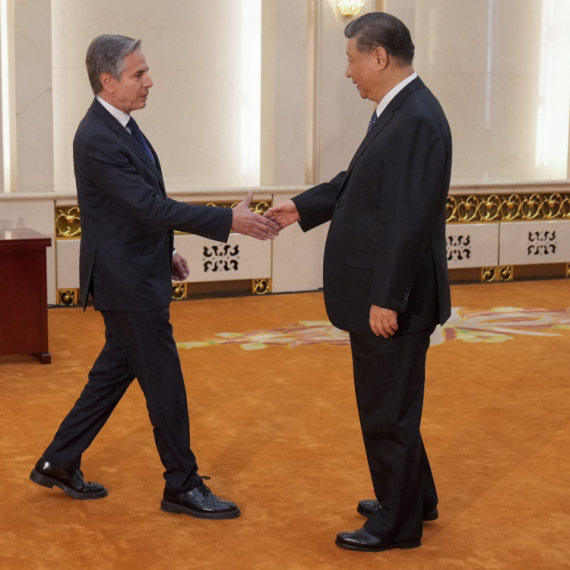


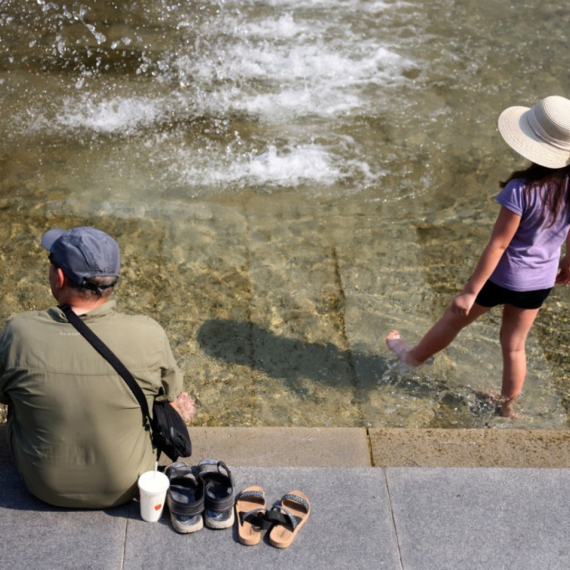
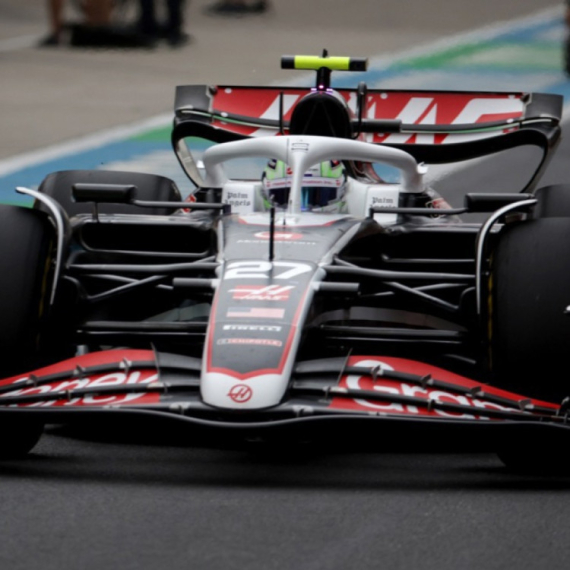
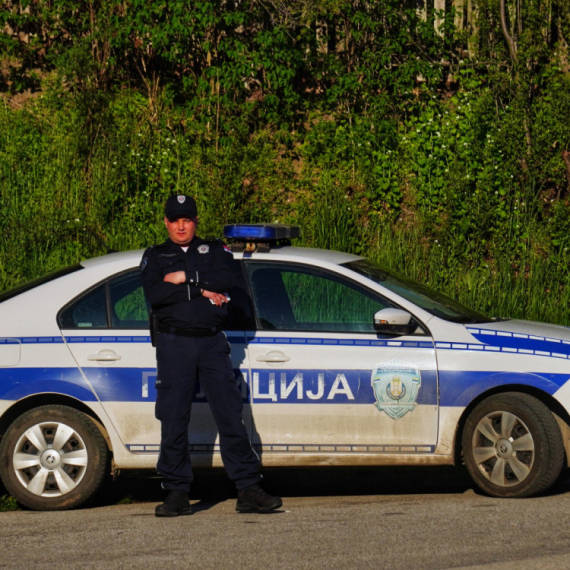



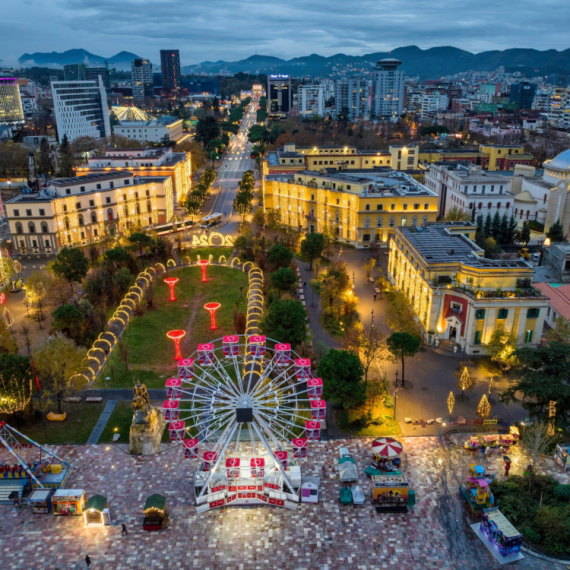





























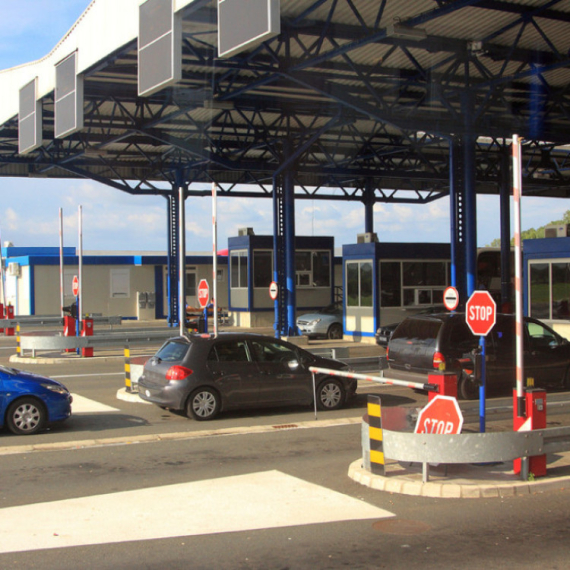






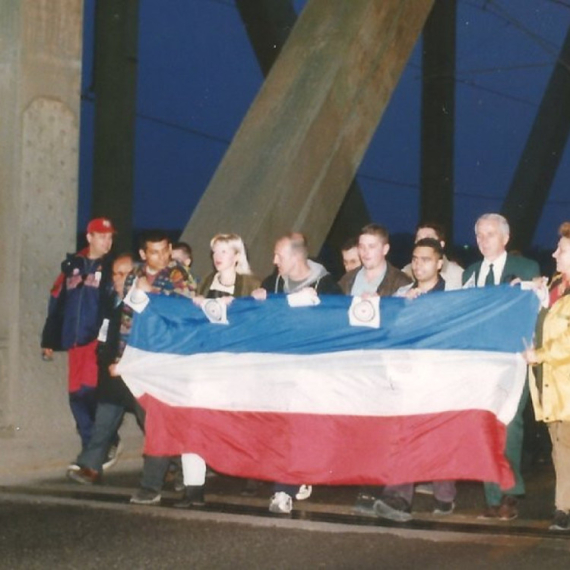


Komentari 50
Pogledaj komentare